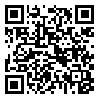Volume 82, Issue 3 (June 2024)
Tehran Univ Med J 2024, 82(3): 255-271 |
Back to browse issues page
Download citation:
BibTeX | RIS | EndNote | Medlars | ProCite | Reference Manager | RefWorks
Send citation to:



BibTeX | RIS | EndNote | Medlars | ProCite | Reference Manager | RefWorks
Send citation to:
Mohtadi M, Pasand M J, Eslamian G. A systematic review of effects of colostrum supplementation on the immune system of athletes. Tehran Univ Med J 2024; 82 (3) :255-271
URL: http://tumj.tums.ac.ir/article-1-13073-en.html
URL: http://tumj.tums.ac.ir/article-1-13073-en.html
1- Student Research Committee, Faculty of Nutrition and Food Technology, Shahid Beheshti University of Medical Sciences, Tehran, Iran.
2- Department of Cellular and Molecular Nutrition, Faculty of Nutrition and Food Technology, National Nutrition and Food Technology Research Institute, Shahid Beheshti University of Medical Sciences, Tehran, Iran. ,gh.eslamian@sbmu.ac.ir
2- Department of Cellular and Molecular Nutrition, Faculty of Nutrition and Food Technology, National Nutrition and Food Technology Research Institute, Shahid Beheshti University of Medical Sciences, Tehran, Iran. ,
Abstract: (257 Views)
Background: Athletes are seeking ways to enhance sports performance and protect themselves from the long-term effects of exercise. One potentially effective solution is the administration of colostrum supplements. Evidence suggests that it can support immune system function by maintaining the integrity of the intestinal barrier. The aim of this study is to evaluate the impact of colostrum supplementation on athletes' immune system performance.
Methods: This systematic review searched English and Farsi databases including Medline, Scopus, Embase, ScienceDirect, Scientific Information Database, Islamic World Science Citation, Cochrane, and Google Scholar website without a time limit until November 2023. Eighteen randomized clinical trials, following the Cochrane protocol, were analyzed to assess the effects of colostrum supplementation on athletes' immune systems. The studies measured various factors, such as the amount of cytokines, concentration of serum immunoglobulins, salivary immunoglobulin, white blood cell count, neutrophil oxidative reactions, and the rate of respiratory system-related diseases in athletes during the consumption of colostrum supplements or its derivatives. The potential risks of bias in the studies were evaluated using the Cochrane Risk of Bias 2.0 tool for randomized controlled trials.
Methods: This systematic review searched English and Farsi databases including Medline, Scopus, Embase, ScienceDirect, Scientific Information Database, Islamic World Science Citation, Cochrane, and Google Scholar website without a time limit until November 2023. Eighteen randomized clinical trials, following the Cochrane protocol, were analyzed to assess the effects of colostrum supplementation on athletes' immune systems. The studies measured various factors, such as the amount of cytokines, concentration of serum immunoglobulins, salivary immunoglobulin, white blood cell count, neutrophil oxidative reactions, and the rate of respiratory system-related diseases in athletes during the consumption of colostrum supplements or its derivatives. The potential risks of bias in the studies were evaluated using the Cochrane Risk of Bias 2.0 tool for randomized controlled trials.
|
Results: The findings of these studies indicate that daily consumption of 3.2 grams of colostrum for 24 weeks can decrease the production of inflammatory cytokines caused by exercise and increase anti-inflammatory cytokines. Additionally, a daily intake of 20 grams of colostrum supplement can protect against the reduction of neutrophil function and immune responses resulting from long-term exercise. The group receiving colostrum experienced fewer upper respiratory tract diseases compared to the placebo group in studies that investigated this indicator. No significant effects on leukocyte count were observed with any dosage of supplementation, and the results of studies on other immune indicators were inconsistent.
Conclusion: Bovine colostrum can improve athletes' immune system performance by regulating immune parameters and mitigating the negative effects of intense exercise. However, the contradictory results of existing studies call for further research that examines different doses of colostrum in various sports. |
Type of Study: Original Article |
Send email to the article author
| Rights and permissions | |
 |
This work is licensed under a Creative Commons Attribution-NonCommercial 4.0 International License. |





